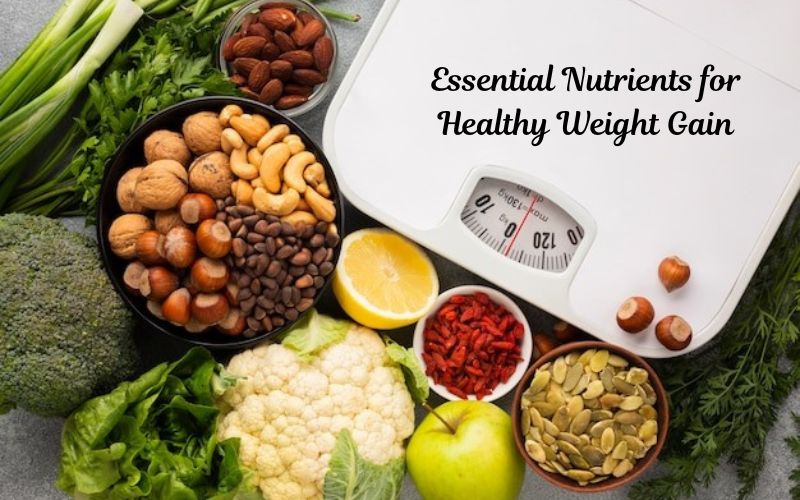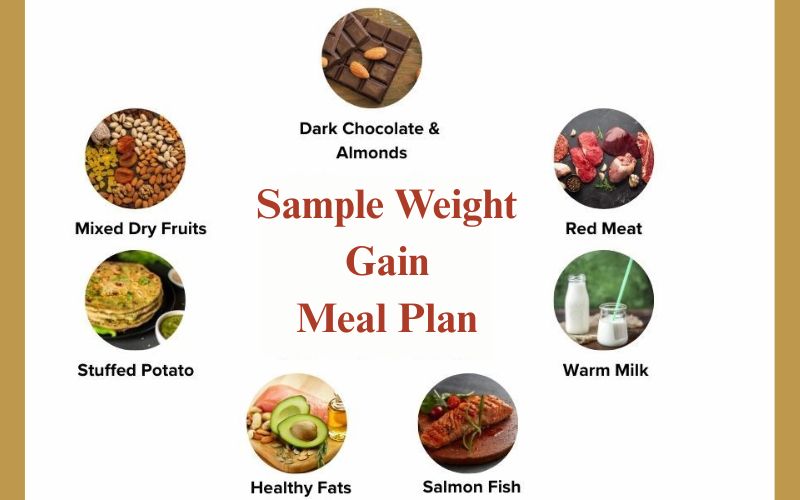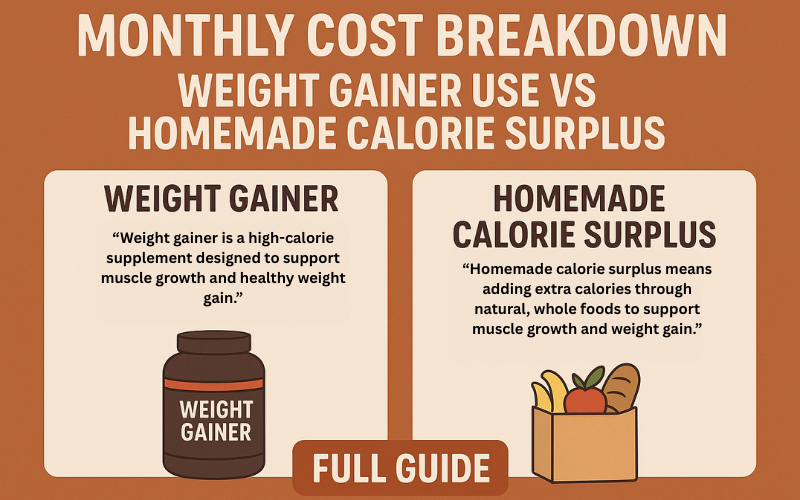The teenage years are a period of immense growth and change, both physically and emotionally. For many teenage girls, gaining weight—whether due to health reasons or as part of a fitness goal—can present a unique challenge. Unlike weight loss, which focuses on calorie deficit, weight gain requires an intentional increase in calorie intake, accompanied by proper exercise and nutrition. A balanced, healthy approach to weight gain is crucial during adolescence, as this is a time when the body undergoes rapid development. This article will guide you through the steps for a safe and effective weight gain plan for teenage girls, focusing on muscle gain, overall well-being, and the importance of nutrition and exercise.
Table of Contents
Understanding Weight Gain for Teenage Girls
Adolescence is marked by significant changes in the body, including an increase in muscle mass, fat storage, and overall height. During puberty, hormonal changes like those of estrogen and progesterone in girls lead to shifts in body composition. This is why the focus of weight gain for teenage girls should be on increasing muscle mass rather than just fat accumulation.
As girls go through puberty, their metabolism may speed up, making it harder for some to gain weight. Understanding how metabolism works is essential in managing a weight gain plan. Moreover, genetics also play a role in how the body stores and burns fat.
Misconceptions About Healthy Weight Gain
A common misconception is that any increase in weight is beneficial, but this is not the case. Focusing on healthy weight gain through muscle mass rather than fat accumulation is crucial. Teenage girls should avoid the temptation of relying on junk foods like sugary snacks, which can contribute to unhealthy fat gain rather than lean muscle.
The key is a controlled, intentional weight gain plan that includes the right combination of nutrition and exercise, not an over-consumption of empty calories.
Essential Nutrients for Healthy Weight Gain

- Protein:
Protein is essential for muscle growth and repair, especially for active teenage girls aiming to gain weight. Including lean meats (chicken, turkey), fish, eggs, dairy products, and plant-based sources like beans and tofu can help provide the necessary protein for muscle development. Aim for 1.2 to 2.0 grams of protein per kilogram of body weight. - Carbohydrates:
Carbs are the body’s primary energy source and are essential when increasing caloric intake. Choose complex carbohydrates like whole grains, oats, quinoa, sweet potatoes, and brown rice. These carbs provide sustained energy and prevent rapid insulin spikes, which could lead to fat gain. - Healthy Fats:
Healthy fats, found in foods like avocado, nuts, seeds, and olive oil, are calorie-dense and crucial for hormone production and overall health. Healthy fats help in maintaining a caloric surplus without the need to overeat.
Micronutrients for Growth and Muscle Development
In addition to macronutrients, vitamins and minerals play an essential role in supporting growth and muscle development. For teenage girls aiming for a healthy weight gain plan, focus on:
- Iron: Found in spinach, red meat, and legumes, iron helps deliver oxygen to muscles and prevents fatigue.
- Calcium and Vitamin D: Both are essential for bone health and muscle function. Include dairy products, fortified cereals, leafy greens, and sunlight for natural Vitamin D.
- Magnesium: This mineral supports muscle function and recovery. It can be found in nuts, seeds, leafy greens, and whole grains.
Caloric Surplus: The Key to Gaining Weight
A caloric surplus means consuming more calories than the body burns, which is necessary for weight gain. To gain weight, teenage girls should aim to increase their caloric intake by about 300-500 extra calories per day, depending on their activity level. This surplus should come from nutritious foods that support muscle growth rather than empty-calorie foods.
Tracking Calories Without Obsession
Tracking calories can be a helpful tool, but it’s important not to become obsessed. Focus on consuming nutrient-dense meals and snacks throughout the day, rather than stressing about exact calorie counts. Apps or a food diary can be useful to keep track without going overboard. Just be mindful of portion sizes and food choices to ensure you are meeting your caloric and nutritional needs.
Effective Workout Routines for Gaining Weight

To gain weight through muscle growth, weight training or resistance exercises should be part of the plan. Resistance training helps stimulate muscle fibers and leads to muscle hypertrophy (growth). Effective exercises include:
Focus on compound movements that engage multiple muscle groups and use moderate to heavy weights for progressive overload. Aim for 3-4 strength-training sessions per week, ensuring proper rest and recovery between sessions.
Cardiovascular Exercise
While cardio can help improve cardiovascular health, it’s important not to overdo it when trying to gain weight. Light to moderate cardio like walking, cycling, or swimming can maintain overall health but should not outweigh strength training. Limit cardio to 2-3 sessions per week, focusing on keeping it balanced with your strength routine.
Sample Weight Gain Meal Plan

A well-balanced meal plan that prioritizes calorie-dense, nutrient-rich foods can help teenage girls reach their weight gain goals. Here’s a sample daily meal plan:
Breakfast:
- 3 scrambled eggs with spinach and cheese
- Whole-grain toast with avocado spread
- A glass of whole milk or a protein smoothie
Snack:
- Greek yogurt with granola and berries
- Handful of almonds
Lunch:
- Grilled chicken breast with quinoa and steamed broccoli
- A side salad with olive oil dressing
Snack:
- Peanut butter on whole-grain crackers
- A banana
Dinner:
- Salmon fillet with brown rice and roasted vegetables (sweet potatoes, carrots) or vegan weight gainers
- A glass of milk
Evening Snack:
- Cottage cheese with pineapple chunks
- Protein shake (optional)
Hydration and Sleep: Key to Muscle Growth
Staying hydrated is crucial for overall health and muscle function. Dehydration can hinder workout performance and recovery. Aim to drink at least 8 cups of water per day, and more if engaging in intense physical activity.
Adequate Sleep for Recovery
Sleep is where muscle repair and growth happen. During deep sleep, the body releases growth hormones that assist in muscle recovery. Teenagers should aim for 8-10 hours of sleep per night to support healthy weight gain and muscle growth.
Common Mistakes to Avoid
- Relying on Junk Food for Weight Gain:
While it may seem like an easy way to gain weight, consuming unhealthy junk foods can lead to fat gain rather than muscle growth. Focus on whole, nutrient-dense foods. - Neglecting Exercise:
Many believe that simply eating more will lead to weight gain. However, without exercise, especially strength training, the weight gained will likely be unhealthy fat. - Overusing Supplements:
Supplements should never replace whole foods. Always consult with a healthcare professional before incorporating supplements like protein powders, especially during adolescence.
Conclusion
A consistent, healthy approach to weight gain is crucial for teenage girls. Focusing on muscle growth, consuming nutrient-dense foods, and engaging in strength training will help build a strong foundation for a healthy weight gain plan. Remember to track progress, stay hydrated, get enough sleep, and avoid common mistakes like relying on junk food or neglecting exercise. For specific concerns or personalized guidance, consulting a healthcare professional or nutritionist is always a good idea.


























